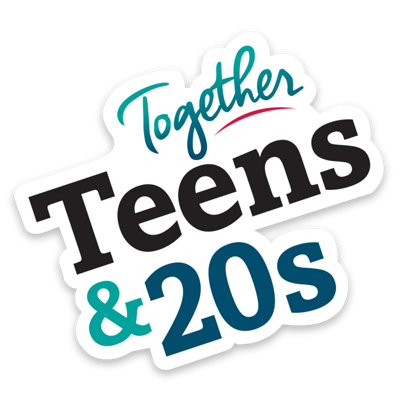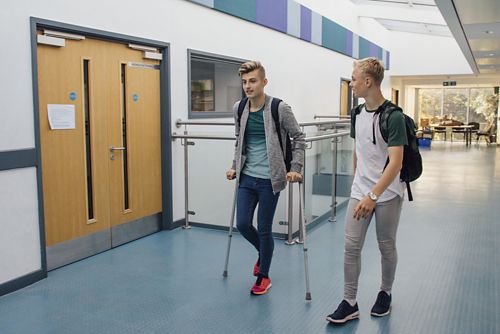College and trade schools likely have services to help you when you need academic or physical accommodations for cancer-related problems.
Sometimes cancer and treatment side effects can affect thinking and learning skills or your ability to get around from place to place. If such an impairment substantially limits life activities such as learning, reading, concentrating, or thinking, it is considered a disability.
Federal law requires post-secondary schools such as colleges, universities, and trade schools to offer equal access to people with disabilities. The laws that protect people with disabilities are Section 504 of the Rehabilitation Act of 1973 and Title II of the Americans with Disabilities Act.
Schools offer accommodations to students with disabilities. Accommodations provide the same access to academic opportunities and buildings as people without disabilities. If the school provides housing to non-disabled students, it must provide comparable, convenient, and accessible housing to students with disabilities at the same cost.
What accommodations are available?
Accommodations depend on your needs. They can include:
- Extra time to complete assignments
- Permission to arrive late to certain classes if you need extra time to get across campus
- Copies of lecture notes
- Assistive technology such as electronic organizers, speech recognition software and screen readers
- Taking tests in a testing center to reduce distractions
How do you arrange accommodations?
Requesting accommodations in college is different than in high school. This process in college is handled through the student disability services office on campus.
It is the responsibility of the student – not parents – to register with the office and request accommodations. The school will require documentation of your disability.
If you had an Individualized Education Program (IEP) or 504 plan in high school, it will not carry over to college. But you may be able to use high school plans as part of your documentation.
Documentation may include:
- A diagnosis of disability
- Date of diagnosis
- How the diagnosis was reached
- The credentials of the diagnosing professional
- Information on how your disability affects a major life activity
- Information about how the disability affects your academic performance
- Testing reports or psychological evaluations
It is a good idea to request accommodations as early as possible. Some academic adjustments may take more time to provide than others. You should follow your school’s procedures to ensure the school has enough time to review your request and provide the accommodation.
The school will evaluate your request or may conduct its own evaluation of your disability and needs. If the documentation you provide does not meet the school’s requirements, a school official should tell you in a timely manner what additional documentation is needed. You may need a new evaluation to provide the documentation.
For more information and tips about documentation, visit the National Center for College Students with Disabilities.
How do I advocate for myself?
The school will work you to identify appropriate academic adjustments. You should prepare to handle this on your own. You should be able to discuss your academic and physical needs, including classroom accommodations you may have had previously.
Practice telling your story and communicating your needs. You are the only person who can explain how you learn and interact with your surroundings and other people. You can explain your challenges and needs regarding transportation, buildings, classrooms, textbooks, materials, notetaking, and tests.
Your treatment center’s school program, social workers, psychologists, and nurse care managers can help you.
Guide to determining accommodations
College campuses approach accommodations differently.
The National Center for College Students with Disabilities has a guide to help you figure out what accommodations you might need.
- Think about how you’re doing in general.
- Are you having health issues right now? Do you have a condition that could flare up during the semester?
- Are you doing OK financially? Are you having any issues with financial aid?
- How are you doing with keeping up with your courses? Do you have a good advisor who can help you plan out your time here?
- Is your housing OK? Are you having any disability-related issues with your housing, roommates, or family?
- Do you need any emotional or physical help right now to be safe from bullying, violence, and harassment?
- Do you feel welcome on campus? Are you having any trouble getting disability accommodations for events, student organizations, work-study, and other aspects of campus?
- Do you feel OK talking about your disability with close friends? Do you have people to support your religion, culture, identity, and interests?
- Is transportation an issue for you? Are you able to get around campus, access buildings, and find parking?
- Are you having any trouble using campus services, like dining services, counseling, study abroad, computer labs, health services, career services, financial aid, the rec center or athletics, chaplain offices, performing arts, cultural centers, tutoring centers, or other groups on campus?
- List the classes you’re taking.
- If you’ve been to class already, what are your favorite parts of each one? What will be easy or fun for you? Focus on these things. Write about some things you are looking forward to this semester, or aspects or courses that will be interesting, challenging, or engaging for you.
- Think about your courses and what may be difficult for you. What might require accommodations? Think about some accommodations that may help address these issues.
Examples of challenges and accommodations



